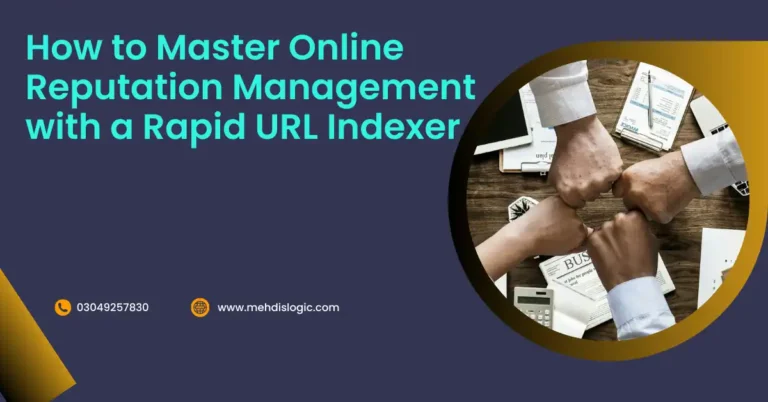Beware of Digital Marketing Scams: Tips for Business Owners
Digital marketing has changed how businesses connect with customers. However, it has also opened doors for scammers. These scams often target people who know little about digital marketing. They take advantage of people’s wish for quick results.
It is important to recognize and avoid these scams. This is crucial for anyone in the digital world.
Understanding Digital Marketing Scams
Digital marketing scams come in many forms, each designed to deceive individuals and businesses. By understanding the types of scams and how they operate, you can better protect yourself from falling victim.
Common Types of Digital Marketing Scams
Digital marketing scams vary widely, but some types are more common than others. Here’s a look at some of the most frequent scams.
Phishing Scams
Phishing scams trick people into sharing sensitive information, like passwords or credit card details. Scammers pretend to be real companies. These scams usually appear as believable emails. They often lead to fake websites or downloads of harmful software.
Fake SEO Services
Fake SEO services prey on businesses looking to improve their online visibility. These scams offer “guaranteed top rankings” or fast fixes that sound too good to be true.
In reality, they often provide low-quality backlinks. They may also use “black hat” SEO techniques. These methods can hurt a website’s ranking instead of helping it.
Social Media Scams
Scammers frequently target social media users by offering fake followers, likes, or engagement. While they promise quick growth on social media, they often provide fake accounts or bots. This can hurt a brand’s credibility instead of helping it.
Email Marketing Fraud
Scammers may pose as legitimate email marketers, promising to build email lists or run effective campaigns. After receiving payment, they often disappear, or they send spammy emails that damage a business’s reputation.
Fake Ad Click Services
Fake ad click services offer to increase engagement metrics artificially. They use bots or paid people to click on an ad many times. This wastes the advertiser’s budget. It also distorts data, leading to wrong conclusions about how well the campaign is doing.
How Digital Marketing Scams Operate
Digital marketing scams employ a range of tactics to deceive people. Here are some common methods scammers use to lure victims.
Deceptive Advertisements
Deceptive ads aim to grab attention with flashy promises or exaggerated claims. You often see these ads on social media, websites, or search engines. They lead users to fake services or unreliable products.
Data Harvesting Schemes
In data harvesting schemes, scammers provide “free” resources, courses, or services. In return, they ask for users’ personal data. This data is often sold or misused. This puts people’s privacy at risk and can lead to more targeted scams.
Warning Signs of Digital Marketing Scams
Spotting red flags can save you from falling victim to digital marketing scams. Here are some common warning signs to watch for.
Promises of Instant Results
Any digital marketing service promising instant success is likely a scam. Real, effective digital marketing takes time and strategy, so be cautious of anyone offering quick fixes or guaranteed results.
Lack of Transparency
Legitimate digital marketing companies are transparent about their methods and expected outcomes. If a company is unwilling to explain how they will achieve results or avoids discussing their process, it’s a clear red flag.
High-Pressure Tactics
Scammers often use high-pressure tactics. They create limited-time offers or urgency statements.
This pushes people to make quick decisions. It prevents them from having time to research or think things over. Avoid any service that uses aggressive sales techniques to rush you.
Protecting Yourself from Digital Marketing Scams
Being proactive is essential to protect yourself from digital marketing scams. Here are some tips to help you avoid falling victim.
Research and Verify Credentials
Before engaging with a digital marketing company, do thorough research. Look for testimonials, reviews, and case studies. You can check third-party review sites for additional information and to gauge the company’s reputation.
Avoid Offers That Sound Too Good to Be True
Offers that promise “overnight success” or “100% guaranteed results” are often scams. Stick with professionals who set realistic expectations and provide a clear, actionable plan.
Use Secure Payment Methods
Always use secure payment methods like credit cards or payment processors that offer fraud protection. Avoid direct wire transfers or other payment methods that make it difficult to recover funds if a scam occurs.
Reporting Digital Marketing Scams
If you find a digital marketing scam, reporting it can help protect others. Tell consumer protection agencies, the platforms where the scam is shown, or cybersecurity authorities. Reporting scams raises awareness and can stop others from being targeted.
Conclusion
Digital marketing scams are everywhere, and their methods are changing. By staying informed and spotting warning signs, you can protect yourself and your business. Always remember, if an offer seems too good to be true, it likely is.
FAQs
What should I do if I fall victim to a digital marketing scam?
If you fall victim to a scam, contact your bank or payment provider immediately to report the transaction. Consider reporting the incident to local authorities or consumer protection agencies as well.
How can I verify if a digital marketing company is legitimate?
To check if a digital marketing company is legitimate, look for reviews, testimonials, and case studies. If you can, contact past clients. Stay away from companies that do not have a good track record or clear information.
Why are fake SEO services so dangerous?
Fake SEO services often use dishonest methods. These tactics can result in penalties from search engines. Such penalties can harm your website’s visibility. This damage can hurt your business in the long run.
Are all paid social media followers fake?
Not all paid followers are fake, but it’s essential to work with reputable companies if you choose to boost your following. Low-quality sources often deliver bots, which can harm your engagement metrics and reputation.
What are some warning signs of email marketing fraud?
Signs of email marketing fraud include spammy content and unclear opt-in permissions. There is often no disclosure about how they build their email lists. Transparency is essential for legitimate email marketing, so watch out for any company that withholds information.






